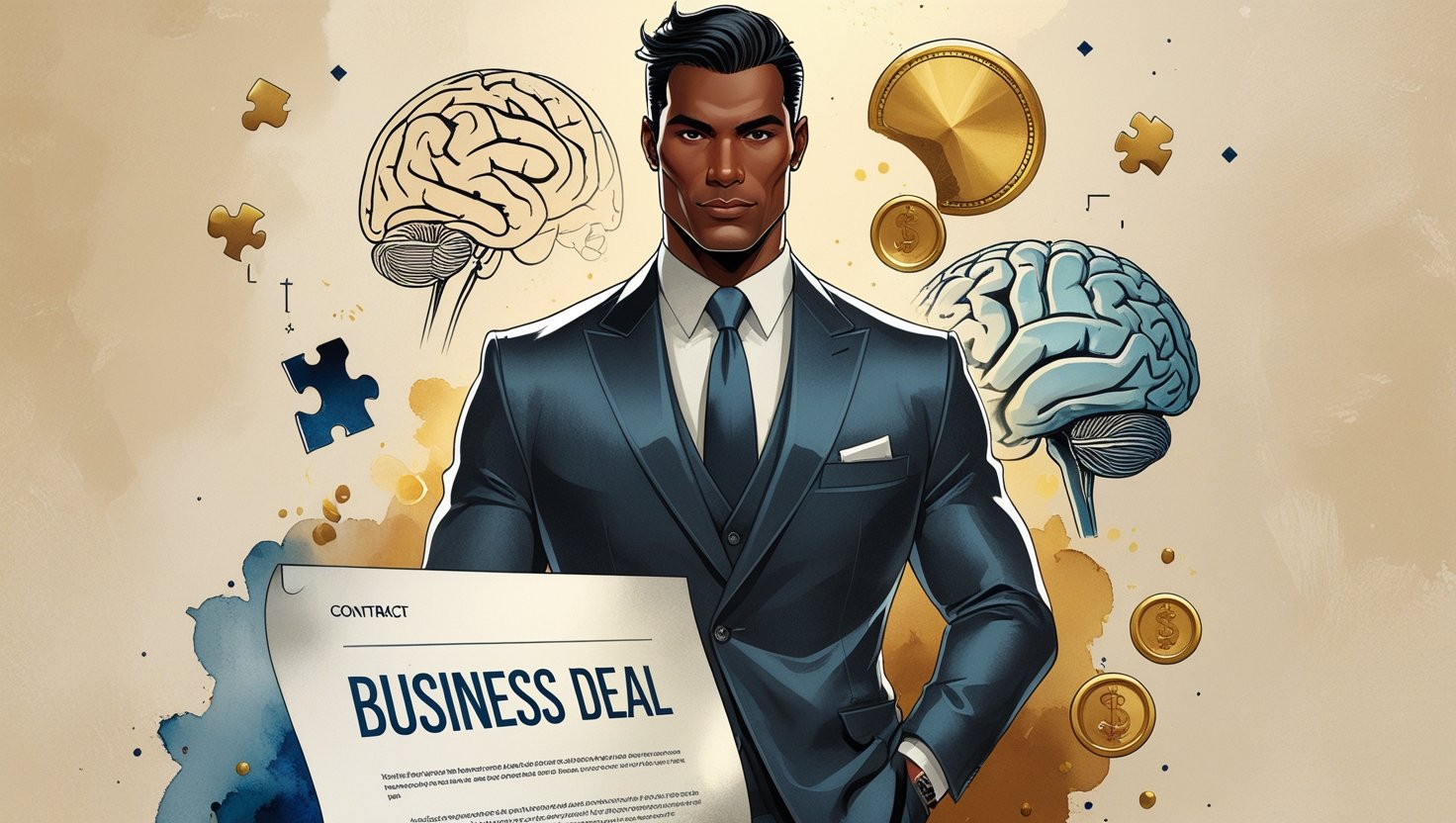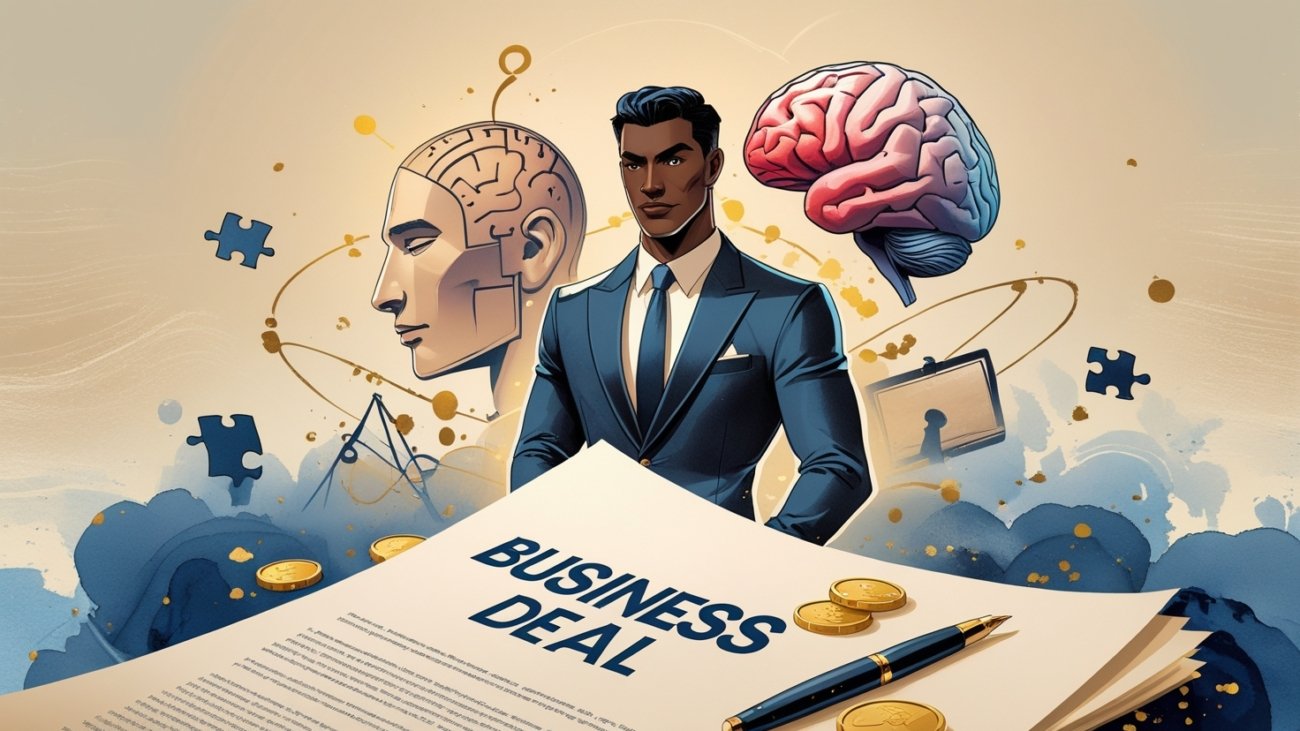
In business, success often hinges on your ability to persuade — whether you’re negotiating a deal, pitching an investor, or convincing a customer to buy.
But persuasion isn’t about manipulation; it’s about understanding human psychology and using it ethically to create win-win outcomes.
From Robert Cialdini’s principles of influence to neuroscientific triggers that drive decisions, mastering the psychology of persuasion can transform your business interactions.
1. The Power of Reciprocity: Give Before You Ask
People feel obligated to return favors. If you offer value first, they’re more likely to say “yes” later.
– Send a free sample, resource, or consultation before pitching.
– In negotiations, make a small concession first — it often leads to a bigger one in return.
Example: Dropbox grew by giving free storage space for referrals.
2. Social Proof: People Follow the Crowd
We look to others to determine what’s correct — especially when uncertain.
How to leverage it:
– Show testimonials, case studies, and user numbers (“Join 50,000+ satisfied customers”).
– Highlight influencers or big brands using your product.
Real-world case: Airbnb displays “X people booked this today” to create urgency.
3. Scarcity & FOMO: Fear of Missing Out Drives Action
When something feels rare or time-sensitive, people want it more.
Business applications:
– Use limited-time offers (“Only 3 spots left at this price”).
– Highlight exclusive access (“For VIP members only”).
Why it works: The brain values potential loss more than potential gain (loss aversion).
4. Authority: People Trust Experts
We’re more likely to comply with requests from perceived authorities.
How to establish authority:
– Display credentials, certifications, or media features.
– Use jargon-free expertise — explain complex ideas simply to build trust.
Example: Doctors in lab coats sell more pharmaceuticals — even if they’re actors.
5. Liking: People Buy from Those They Like
We’re more easily persuaded by people we find relatable and friendly.
Ways to increase likability:
– Mirror body language subtly to build rapport.
– Find common interests before pitching (sports, hobbies, background).
– Use humor and storytelling to connect emotionally.
Sales tip: People remember how you made them feel more than what you said.
6. Commitment & Consistency: Small “Yeses” Lead to Bigger Ones
Once someone commits to something, they’re more likely to follow through.
How to apply it:
– Start with small agreements (“Do you agree that saving time is valuable?”).
– Use public commitments (e.g., getting a verbal “yes” before a contract).
Study: Charities increase donations by asking, “Will you help?” before asking for money.
7. The Contrast Principle: Frame Choices Strategically
Our perception changes based on comparison.
How to use it in deals:
– Show a high-priced option first to make the mid-tier seem reasonable.
– In negotiations, anchor high so your real target seems fair.
Example: Restaurants list expensive wines first to boost mid-range sales.
8. The Decoy Effect: Influence Choices with a Third Option
Adding a strategically inferior option can steer decisions.
Business example:
– Basic Plan ($10) | Pro Plan ($50) | Pro+ ($55 with one extra feature)
– The Pro+ makes Pro seem like a smarter deal.
Why it works: The brain seeks the most logical choice when comparisons exist.
9. Storytelling: Facts Tell, Stories Sell
Our brains are wired to remember narratives, not data dumps.
How to persuade with stories:
– Share customer success journeys (“How Sarah 3X’d her revenue”).
– Use metaphors (“Our software is like a Swiss Army knife for productivity”).
Neuroscience fact: Stories activate oxytocin, the trust hormone.
10. The Rule of Three: The Magic Number for Persuasion
People remember information best in triplets.
How to structure pitches:
– “Faster, stronger, smarter.”
– “Our product saves time, cuts costs, and boosts revenue.”
Why three? It creates rhythm, completeness, and memorability.
Persuasion is About Serving, Not Manipulating
The best business deals happen when both sides win.
By understanding these psychological triggers, you can:
Build trust faster
Negotiate better
Close more sales ethically


I think this is one of the so much vital info for me. And i’m glad studying your article. However wanna statement on some general things, The web site style is great, the articles is in reality nice : D. Good process, cheers
I’ll immediately grasp your rss feed as I can not to find your e-mail subscription hyperlink or newsletter service. Do you’ve any? Kindly let me realize in order that I may just subscribe. Thanks.
The next time I read a blog, I hope that it doesnt disappoint me as much as this one. I mean, I know it was my choice to read, but I actually thought youd have something interesting to say. All I hear is a bunch of whining about something that you could fix if you werent too busy looking for attention.